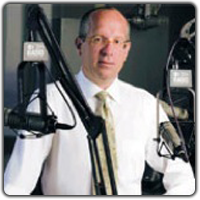 Peter Osgood is a seasoned communications expert and trusted advisor to business and nonprofit leaders. This week, he shares some of the lessons he’s learned from a lifetime of communicating with people, from the U.S. Army to investor relations and beyond.
Peter Osgood is a seasoned communications expert and trusted advisor to business and nonprofit leaders. This week, he shares some of the lessons he’s learned from a lifetime of communicating with people, from the U.S. Army to investor relations and beyond.
TILE: How did you get where you are today?
Peter: Always listening, questioning and trying to understand what others are saying and feeling while applying the values which transcend the countries, religions and cultures and economic environments in which most of us live. I’ve also tried to accumulate my experiences and apply them thoughtfully to the issues we face today.
TILE: How does what you do affect the world at large? Why should I care about what you do?
Peter: What I do today is only as important as my ability to provide meaningful counsel to my clients as they make their own value judgments in their professional environments. I believe I now provide guidance based on cumulative experiences and a modicum of understanding of the environment in which we live. You don’t need to care about what I do, but you do need to have some “voices of experience,” those who can help you shape and improve your own frame of reference. I’ve always had them, and still do.
TILE: How do you break tough news to a group of investors?
Peter: There are many kinds of investors, or stakeholders. Some invest money. The Golden Rule applies across all type of investors and all the time. Be honest. Be transparent. In the long run it was, is and will be the best rule. And, don’t discriminate. It tends to compromise and devalue. The other rule is, when the news is bad, tell them why and what is being done to overcome the adverse news. And, get the bad news out as soon as you know it.
TILE: What’s the best advice you would give your teenage self?
Peter: Assuming I didn’t grow up knowing I wanted to be a nuclear scientist, my advice to myself would be to pay more attention to all aspects of my liberal arts education, being more attuned to learning and questioning. I would advise myself to become more aware of what was going on outside my U.S. environment, my economic environment, my own religion (or lack thereof), and most important, I’d ask myself to spend more time caring about others and how they think. I wouldn’t want to have been such a “know-it-all,” or better-phrased “opinionated.”
>> TILE brings you exclusive opinions, explanations, and interviews from experts in every industry. To read more, click on Ask the Experts in the TILE Library.
Have a burning question or an expert you’d like to see interviewed? Just Ask TILE!
 Peter Osgood is a seasoned communications expert and trusted advisor to business and nonprofit leaders. This week, he shares some of the lessons he’s learned from a lifetime of communicating with people, from the U.S. Army to investor relations and beyond.
Peter Osgood is a seasoned communications expert and trusted advisor to business and nonprofit leaders. This week, he shares some of the lessons he’s learned from a lifetime of communicating with people, from the U.S. Army to investor relations and beyond. Joel Hollander has worked behind the scenes in the radio business throughout his whole career. He has successfully led and turned around several media companies, served as President & CEO of both CBS Radio (formerly Infinity Broadcasting) and Westwood One Inc., and is one of the major players in creating the future of radio. He’s currently working on a new project – 264 Echo Place Partners, a strategic advising firm. Joel took a moment to tell us about what it took to get where he is, and what tomorrow’s radio looks (er, sounds) like.
Joel Hollander has worked behind the scenes in the radio business throughout his whole career. He has successfully led and turned around several media companies, served as President & CEO of both CBS Radio (formerly Infinity Broadcasting) and Westwood One Inc., and is one of the major players in creating the future of radio. He’s currently working on a new project – 264 Echo Place Partners, a strategic advising firm. Joel took a moment to tell us about what it took to get where he is, and what tomorrow’s radio looks (er, sounds) like.